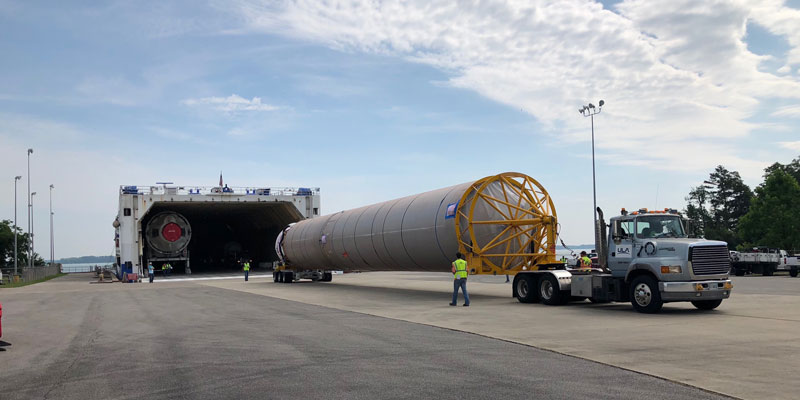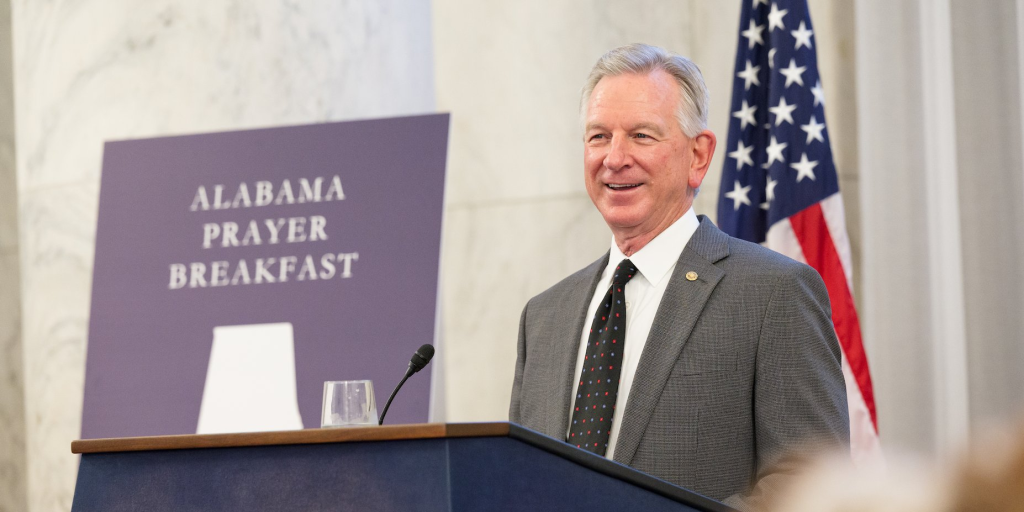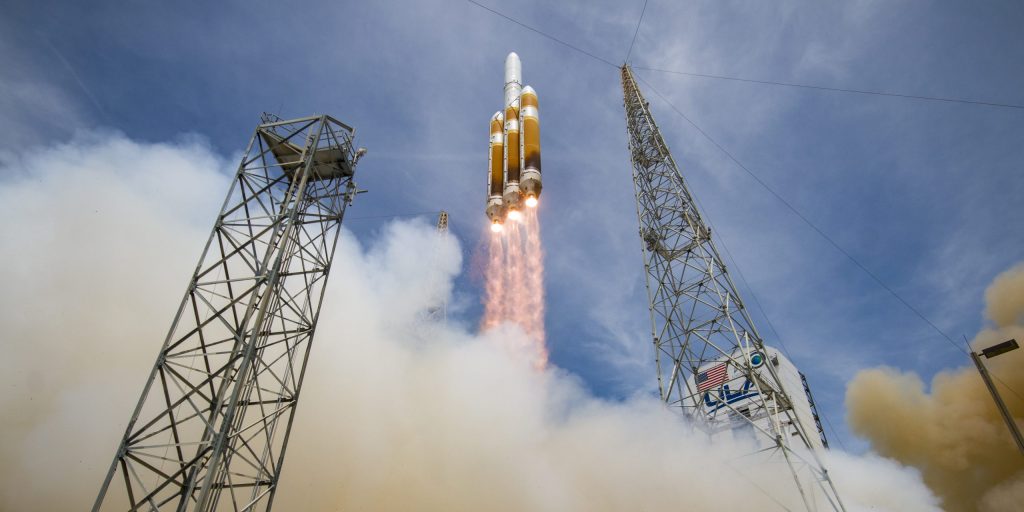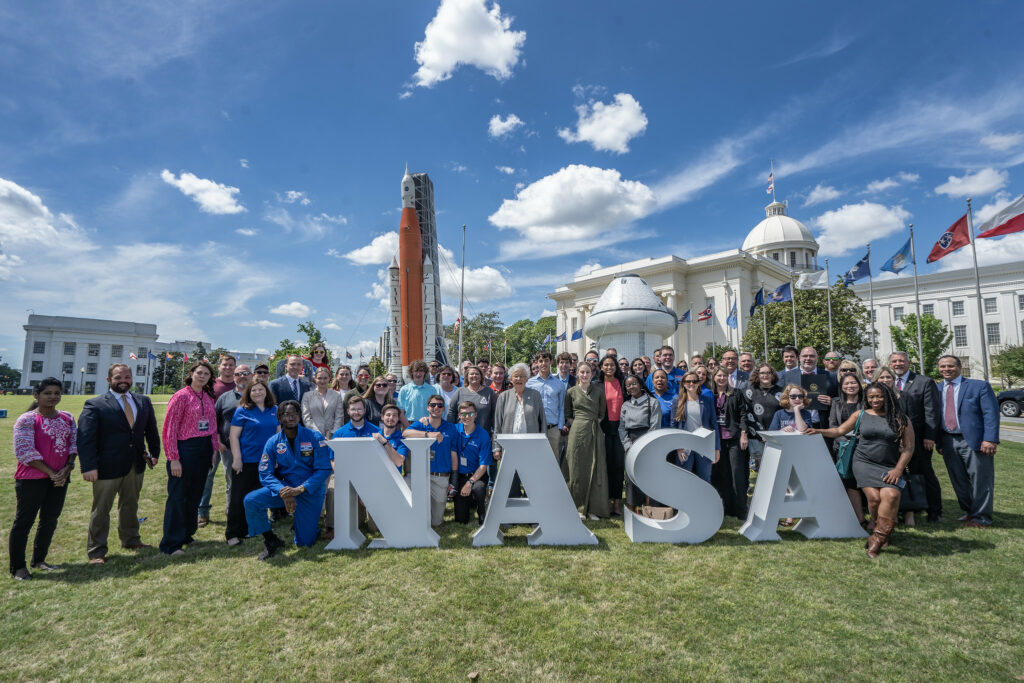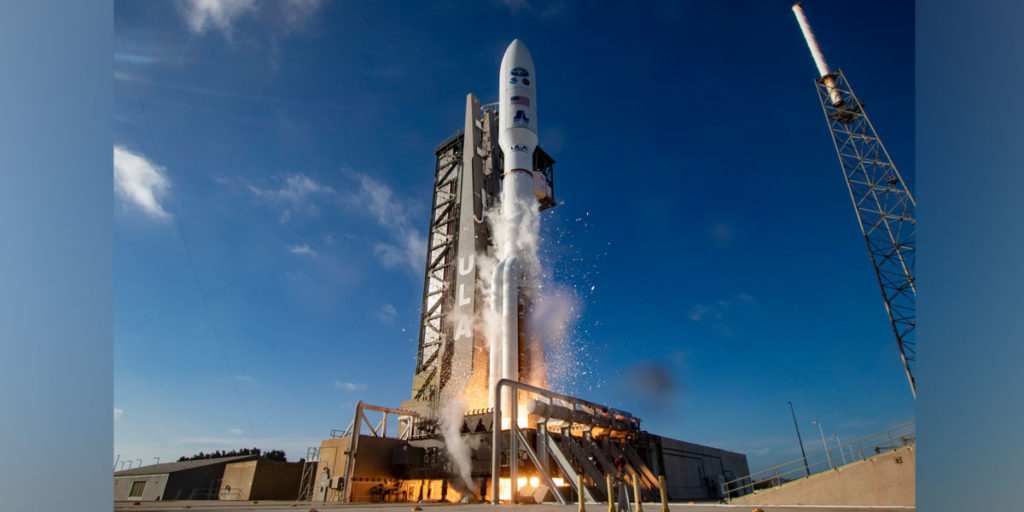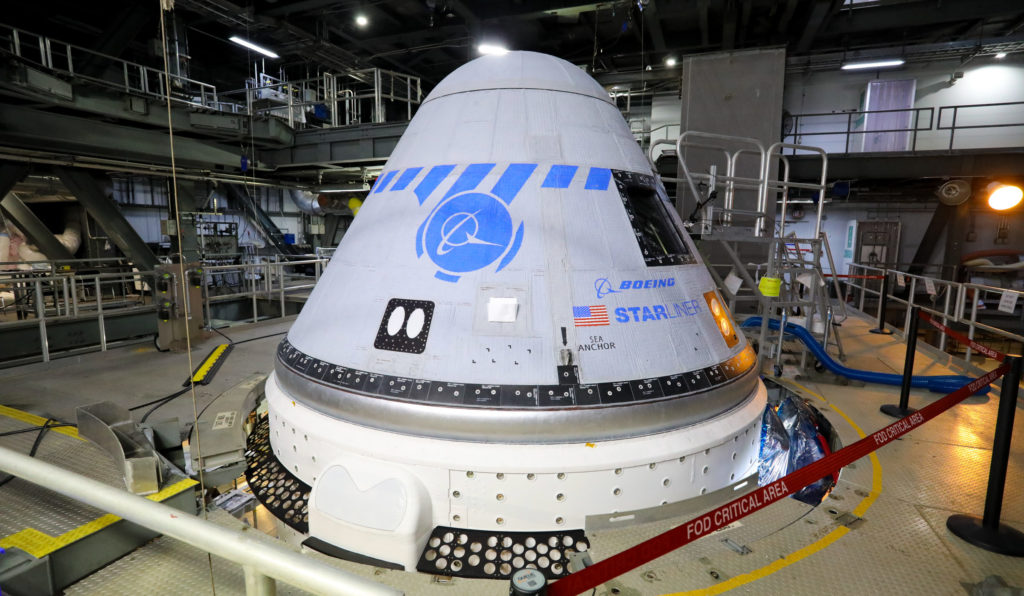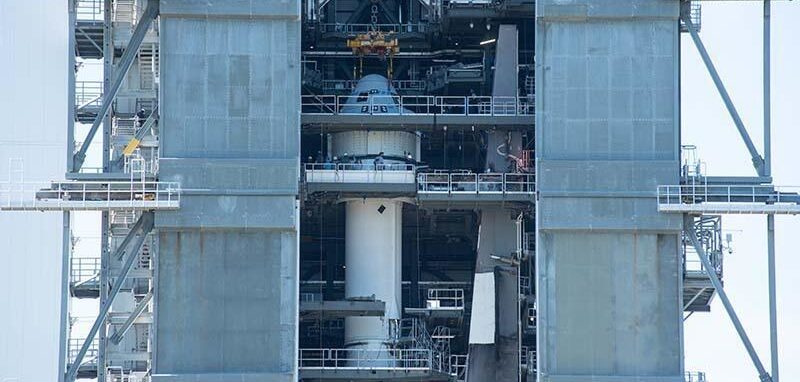A rocket booster built at United Launch Alliance’s (ULA) Decatur plant was loaded on a boat bound for Cape Canaveral on Thursday. The booster will help power a historic mission to the International Space Station, the first manned commercial space flight since 2011.
The occasion also served as a reminder of just how critical Alabama has been to the nation’s human space flight program.
Rick Navarro, Boeing director of launch operations, stood in front of the massive rocket booster inside ULA’s factory to deliver remarks for the event. As part of the mission partnership with ULA, Boeing’s Starliner capsule will carry American astronauts into space.
Navarro recalled his first trip to north Alabama in 1986 and how the area’s importance has been bringing him back ever since.
“The entire area has actually contributed to human spaceflight,” he explained. “You cannot tell the story of human space flight without telling the story of northern Alabama. Of Decatur. Of Huntsville.”
Navarro noted that the Boeing design center in Huntsville provided all the structural design for the Starliner capsule. Additionally, the Boeing division called Phantom Works, which has an operation in Huntsville, provided what he called “revolutionary power systems” for the capsule.
“Very few people forget on the day of the launch how much work was done early on in the mission to get you there,” he said. “Some of that hard work has always been in this area.”
The Atlas V rocket that will power the Boeing capsule was assembled and manufactured within ULA’s 1.6 million square foot Decatur plant. The fabrication of the booster shipped on Thursday began in July 2017 as a piece of flat aluminum material. The Atlas V has flown 79 successful missions.
Jeremy Nails, president and CEO of the Morgan County Economic Development Association, knows this effort places his area in a unique position.
“Not many communities can say they build rockets that take not only commercial but national security satellites into space,” he stated after the event. “That helps keep our country safe. It helps with our every day life, with cell phones and our GPS. Without a reliable launch provider, and they have had 100% mission success, where would we be as a country without that? Everything they help with — whether that is the military missions or things that help us in our personal lives — that’s done here in Decatur, Alabama.”
Nails also sees ULA as an example of how Alabama’s commitment to the aerospace industry fuels its growth.
“Their presence helps us recruit other companies here because what they do is technical work,” he said. “Their presence allows us to say, ‘If our workforce can make rockets, then it can also do what you’re wanting to do.’”
With the booster as his backdrop, Boeing’s Navarro put the day in perspective.
“It’s hard to overstate the importance of the hardware behind me,” he said. “It will be what returns American astronauts launched from American soil to space — something we haven’t done since 2011.”
The booster’s journey from Decatur to Florida’s east coast covers 2,000 miles and takes eight to 10 days.
Tim Howe is an owner and editor of Yellowhammer News




